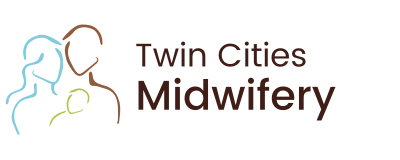17 Jan Cultural Traditions in Postpartum Rest
by Anna Bartels, TCM Apprentice
Once you having your amazing baby in your arms, it is common to feel overwhelmed. There are so many new responsibilities to think about and these paired with an almost certain lack of sleep can make the first few weeks of the postpartum period stressful. A variety of cultures have considered this special transition for hundreds of years and have created wonderful postpartum traditions which are aimed at ensuring that both mama and baby are able to both recover and revel in amazing new processes of parenthood and babyhood.
Latino cultures created the cuarentena, a term related to the Spanish word for forty: cuarenta. The cuarentena means just that, forty days of rest and recuperation for mother and child after the process of birth. It is thought that during this time the woman remains vulnerable and more susceptible to outside influences, so women often practice covering their heads or putting cotton in their ears. In addition, they often may wrap their midsections with what is called a faja, or a long piece of cloth, and they may avoid washing their hair. Other aspects of the cuarentena include avoiding sex, resting for the full forty days, and eating only whole nutritious foods, while eschewing spicy and heavy foods. It is extremely common for female elders, usually family members, to oversee the cuarentena for postpartum women. Many attribute proper adherence to the guidelines of the cuarentena to better health in old age.
In China, a similar tradition called “doing the month” is common for women after the birth of a child. The tradition stems from Chinese medicine, which stressed the importance of a balance of the yin and yang in the body. In this system, it is thought that giving birth disrupts the balances of yin and yang, so the postpartum month is a time to restore the balance through the maintenance of certain parameters such as avoiding cold water (considered yin) and and consuming foods like chicken, eggs, and ginger (considered yang). Women are also encouraged to avoid sex, going outside, bathing and brushing their teeth. Some researchers attribute avoiding water/bathing to a time when water commonly carried diseases. Again, it is common for elderly women, such as mothers and grandparents, to assist women to ensure that they are able to follow all guidelines in the postpartum month.
Common to both the cuarentena and “doing the month” is a defined time period for solely resting and bonding with and caring for the new baby. In addition, both traditions feel that following these traditions can benefit a woman’s health for many years into the future. Various studies have found that following some sort of rest period not only ensures the time and space to bond with the new baby and it can be help moms in the postpartum period heal more quickly.
The creation of an individualized plan during which a woman can find a way to “do the month” or follow a sort of cuarentena can be highly beneficial for the whole family. Here are some ideas that may help with this sort of plan:
- Don’t be afraid to ask for help. If you have a nearby parent or relative who you feel comfortable having around during the postpartum period, take advantage of their offers of meal preparation, cleaning, childcare or pet care so you can solely focus on your baby.
- Create some sort of meal plan for the first few weeks. This can mean cooking health meals ahead of time and freezing, or utilizing an email list or online calendar like foodtidings.com to organize your friends and family to drop off meals. You can even put a cooler outside your door so people can drop off a dish without interrupting the bonding time you has set aside for your family.
- Hire a postpartum doula. These doulas focus on the postpartum period, which can include breastfeeding assistance, education related to baby care, and ensuring mom is eating and staying hydrated and is as comfortable as possible. Postpartum doulas are experts in taking care of the little details of the postpartum period and so you can concentrate on your new little one.
- Don’t feel guilty! The first few weeks or month of your baby’s life earthside only happen once. The only thing on your mind should be getting to know and caring for your baby.
Sources
Kim-Goodman, Y. (2003) Postpartum Beliefs and Practices Among Non-Western Cultures, The American Journal of Maternal/Child Nursing. Accessed at: http://www.nursingcenter.com/prodev/ce_article.asp?tid=408218
Tuhus-Dubrow, R. (2011) The Fascinating Postpartum Customs of Women From Around the World. Slate.com. Accessed at: http://www.slate.com/articles/double_x/doublex/2011/04/why_wont_this_new_mom_wash_her_hair.html
Peir, F. (2011) In Queens, New Mothers and Old Asian Custom. The New York Times. Accessed at: http://www.nytimes.com/2011/06/05/nyregion/bringing-an-asian-tradition-for-new-mothers-to-new-york.html?pagewanted=all&_r=0




7 Ways I Beat Postpartum Stress | Jess Connell
Posted at 06:32h, 06 April[…] Cultural Traditions in Postpartum Rest […]
Postpartum Rest Guidlines | Twin Cities Midwifery Blog
Posted at 06:25h, 30 June[…] cultures around the world have traditions supporting mothers and newborns during their first postpartum weeks or months. Unfortunately, in mainstream American culture, new […]
The Importance of Postpartum Care Part 1
Posted at 17:37h, 09 November[…] Cultural Traditions in Postpartum Rest […]
Will You Shower During Postpartum?, with Lisa Chin - Birthful.com
Posted at 09:16h, 26 October[…] Cultural Traditions in Postpartum Rest […]